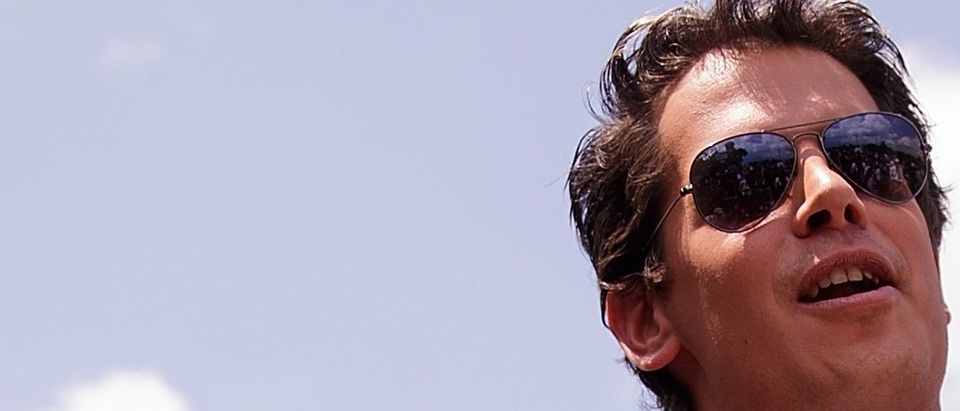Last Saturday, we drove down California 101 to Santa Barbara to see Milo Yiannopoulos speak. A few days later, I returned hopped up on three times my usual number of hypertension pills, massaging a cramp where my heart should be with memories of a dog with an Old Testament name who did a walking handstand while peeing.
And that was probably the least weird part of the circus of events that took me from the Bay Area to the Sacramento Valley to the California Riviera and back again in a number of days. On the night that I was supposed to be sitting with a large audience at UC Santa Barbara, instead I was sitting a few feet away from Judy Shepard, a prominent anti hate speech activist. On Tuesday, I wasn’t in a crowd of students cringing at the entertaining insolence of a man accused by left as making hate sexy. I was attending an intimate talk for donors and guests of the Anti-Defamation League at the posh University Club in Santa Barbara.
The mother of Matthew Shepard, the brutally murdered twenty-one year-old college student whose name is on the 2009 Hate Crimes Prevention Act, shared the blow-by-blow story of her son’s murder and her life afterward. I had intended the trip to be part work, learning about the alt-right, and part indulgence. It combined the pleasure of a weekend in Santa Barbara with the sinful delight of observing firsthand the sass of the self-described “dangerous faggot.”
It turned out quite differently.
The UCSB event was cancelled, but we still had a non-refundable reservation for three nights accommodations in Santa Barbara. What are the chances that your Airbnb host will invite you to a talk by the mother a gay man whose name immediately invokes memories of hate crime on the same night you are supposed to see the gay equivalent of the Joker, a man often accused of hate speech against Muslims and fat girls?
Judy Shepard, a seasoned speaker, walked on stage and pointed to her safety-pin, a symbol adopted by progressives the day after their electoral rout on November 8 meant to signal solidarity with minorities. She emphasized that she may be a white woman from Wyoming, but “I am not a Trump supporter.”
She was there to tell the story of her son, and she did so with passion and heart in a way that made it feel immediate even after almost twenty years. Matthew Shepard would have been almost the same age as I am now, and when he was beaten and left to die, I, like so many other Americans of all stripes and colors, felt symbiotically violated. For the most part, America has changed since 1998. The society that Mrs. Shepard believes encouraged hate crimes against homosexuals from the pulpit and from the family room may no longer exist. But she fears that progress may easily be dismantled through executive orders and legislation.
She openly described her fear of “regressing.” While “we did not get to the American dream” under Obama, she commented. “We had an administration that cared about us.” Mrs. Shepard stated that “since the election people feel empowered to express hate.”
The audience sighed, and from several corners came the exclamations, “We are doomed” and “We’re screwed.” A Cornel West look-alike asked an important, but ultimately unanswered question: “We all know somebody who voted for Trump. How do we confront these people humanely?”
The gentleman’s question, however, is an important one for people in despair over a President Trump. It’s going to take a lot of open-mindedness and understanding for the left not to demonize people who voted for Trump. For their own sakes, they must not automatically brand people as bigoted, and then refuse to talk to them.
When I was waiting to see Milo and Shkreli in Davis, I chatted with the usual diverse group of people we are accustomed to all around California. There were Hispanics, Asians, gays, and a group of Muslim-Americans next to us. I know because I spoke to them. There was conviviality and community.
In contrast, across the barriers people acted as if we were a congregation of Aryan Nation skinheads because we were observing our first amendment right to peaceful assembly. They were heckling and throwing objects.
The kind of violence and censorship, both among the protesters and the administration that did nothing to intervene, have the potential to create precisely the reality that the left fears. There may indeed be a hardening of hearts by the Republican politicians and their maligned constituents if progressives do not learn to listen with open hearts and minds to those they dismiss as the enemy.
There is a great deal of fear on both sides.


